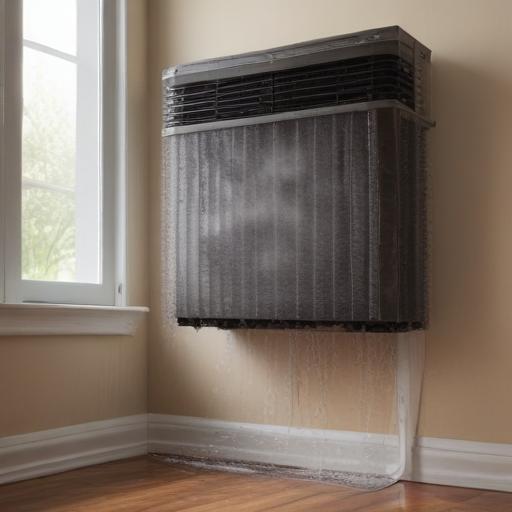The Midea U window air conditioner has made significant waves in the cooling appliance market by delivering quiet and efficient performance without monopolizing window space. However, a concern over mold growth on the internal fan has emerged among users since its launch. Reports have indicated that the fan’s visibility through the unit’s grille may make mold issues more evident compared to other models.
Experts suggest that mold growth is a common issue across many air conditioning units. Gabriel Erde-Cohen, CEO of We Clean Heat Pumps, noted that as many as 70 percent of AC units can exhibit mold when inspected closely. While the Midea U is not necessarily unique in this issue, it does appear to reveal mold due to its innovative design, which allows visibility to the fan.
In exploring this problem, the team attempted to replicate the mold growth scenario but did not succeed. Their investigation led to the conclusion that proper maintenance could effectively mitigate mold. Keeping the fan running regularly and ensuring that the air conditioner is slightly tilted backward can assist in proper drainage and moisture control.
In light of the complaints received, including at least two formal reports made to the Consumer Product Safety Commission (CPSC), Midea has been under scrutiny. Dr. Jonathan Midgett from the CPSC indicated that it is normal for companies to take time, sometimes up to two years, to investigate consumer complaints and outline a remedial action plan.
The importance of airflow and the structural design of the AC units play a critical role in preventing such issues. The CPSC has emphasized that manufacturers are obligated to address mold concerns as a part of their product reliability. Past incidents highlight the potential severity of mold-related issues, underlining the need for ongoing vigilance in product safety.
In a positive light, awareness and dialogue around mold mitigation in air conditioners can lead to improved designs and better maintenance practices. As consumers become more informed, manufacturers are likely to enhance their products to address these concerns, potentially leading to safer and more reliable appliance options in the future.
